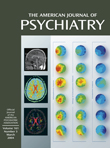Medication Adherence Studies in Schizophrenia
To the Editor: Annette Zygmunt, Ph.D., and colleagues (1) attempted to provide “a comprehensive summary of interventions that have sought to improve adherence to antipsychotic medication in patients with schizophrenia” (p. 1653). Unfortunately, the authors included studies in which medication adherence was neither a study objective nor an experimental variable, thus rendering suspect their conclusions about an intervention’s efficacy. Since references to the literature were extensive, my group’s studies of personal therapy will serve as examples (2). Medication compliance was neither a primary nor a secondary outcome in these studies.
Dr. Zygmunt et al. criticized personal therapy for being “no more effective than usual care in reducing medication nonadherence” (p. 1655) even though treatment was “extended” to 3 years. Ignored was the fact that strategies designed to improve medication compliance were provided to subjects in each treatment group in both trials. All patients also received psychoeducation, case management, and supportive psychotherapy services that were felt to enhance compliance further. The techniques that differed by treatment condition were the personal therapy practice principles designed to manage the effects of stress. Personal therapy was shown to have a positive effect on relapse among patients who lived with their families and significant effects on broad aspects of social adjustment (2, 3).
Although our medication and illness management approaches were fully elaborated in a recent volume regarding personal therapy (4), in the cited article, we described the effort made to enhance medication compliance for all participants (2). In order to control both extrapyramidal side effects (an important cause of noncompliance) and covert nonadherence, a majority of patients’ illnesses were maintained with the minimum effective dose of depot fluphenazine or haloperidol decanoate. A smaller number of patients’ illnesses were increasingly maintained with clozapine over time, with plasma levels monitored in order to ensure a therapeutic range. We provided data indicating that medication compliance was exceptionally high among all study subjects.
It is methodologically important in schizophrenia psychosocial treatment trials to minimize medication noncompliance in both experimental and control conditions in order to ensure that the effects of a psychosocial treatment are not the artifacts of medication. Treatment effects in personal therapy studies (as well as in the cited study of our family psychoeducational approach) were, therefore, independent prophylactic and therapeutic effects that could be causally attributed to the psychosocial interventions and not to indirect drug effects that were secondary to greater medication compliance in the experimental conditions. Dr. Zygmunt et al. inappropriately fault the efficacy of our own and other psychosocial treatments through contrasts with interventions (e.g., compliance therapy) that were designed specifically to enhance medication adherence among patients who were presumed to be at high risk for noncompliance. Comparing the primary outcome of one intervention to a secondary (or lower) outcome of another intervention is a highly questionable and potentially misleading method.
A formidable issue facing the mental health community is the reluctance to implement psychosocial interventions for schizophrenia that have been shown to forestall relapse and improve adjustment. An inaccurate portrayal of the aims and outcomes of broadly efficacious psychosocial interventions unfairly compromises the case for implementation and, in turn, the potential care of patients.
1. Zygmunt A, Olfson M, Boyer CA, Mechanic D: Interventions to improve medication adherence in schizophrenia. Am J Psychiatry 2002; 159:1653–1664Link, Google Scholar
2. Hogarty GE, Kornblith SJ, Greenwald D, DiBarry AL, Cooley S, Ulrich RF, Carter M, Flesher S: Three-year trials of personal therapy among schizophrenic patients living with or independent of family, I: description of study and effects on relapse rates. Am J Psychiatry 1997; 154:1504–1513Link, Google Scholar
3. Hogarty GE, Greenwald D, Ulrich RF, Kornblith SJ, DiBarry AL, Cooley S, Carter M, Flesher S: Three-year trials of personal therapy among schizophrenic patients living with or independent of family, II: effects on adjustment of patients. Am J Psychiatry 1997; 154:1514–1524Link, Google Scholar
4. Hogarty GE: Personal Therapy for Schizophrenia and Related Disorders: A Guide to Individualized Treatment. New York, Guilford, 2002Google Scholar



